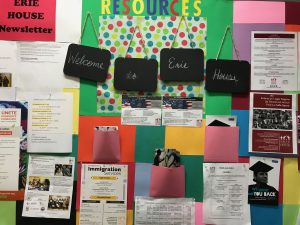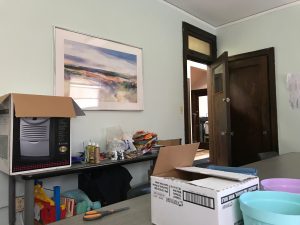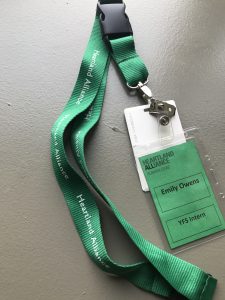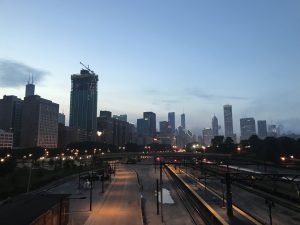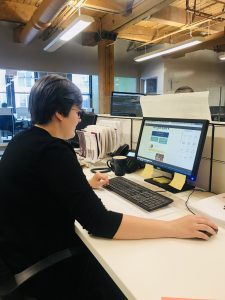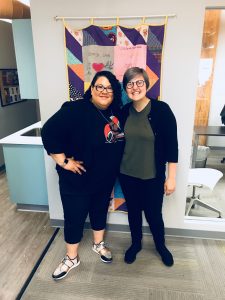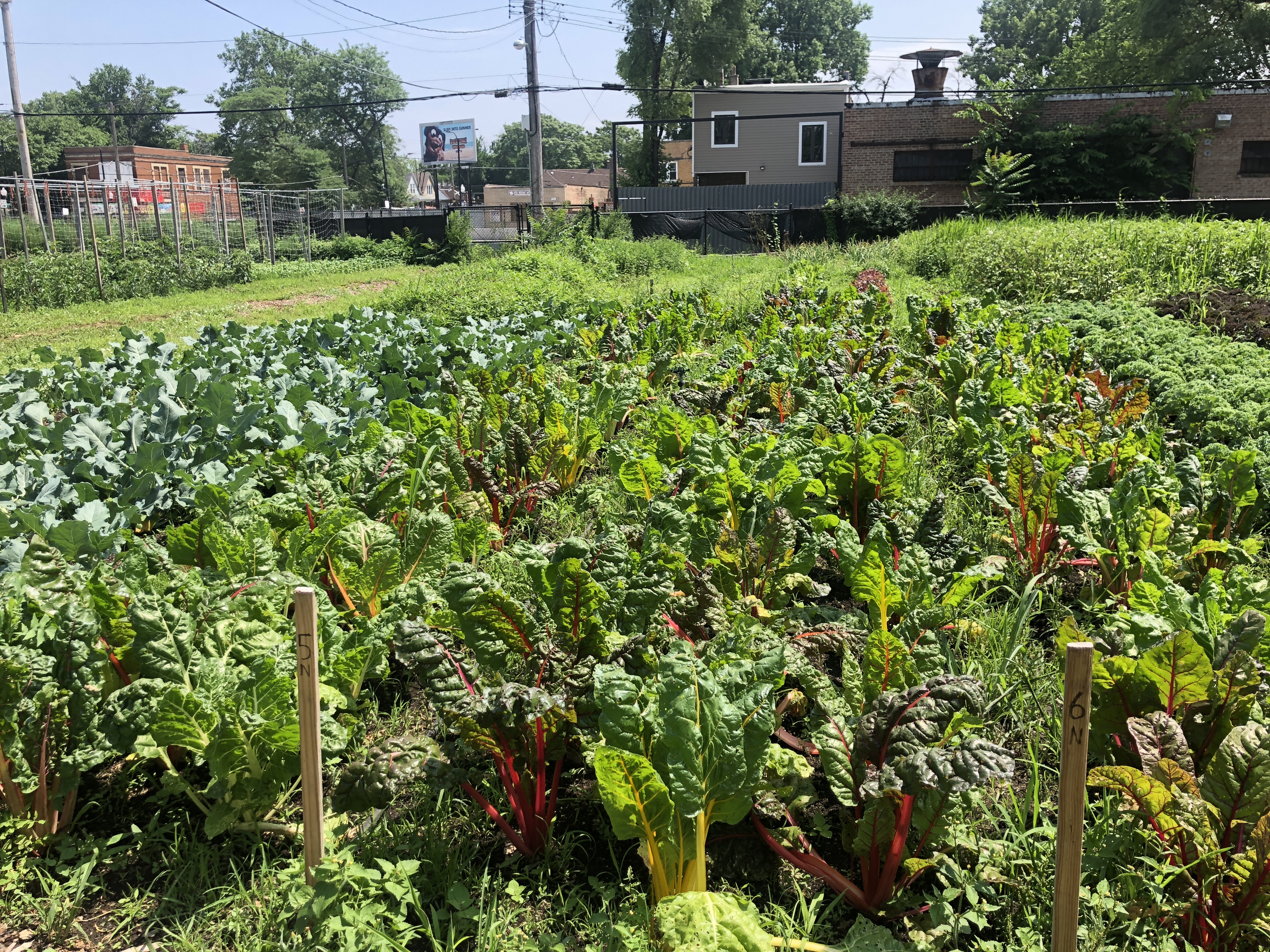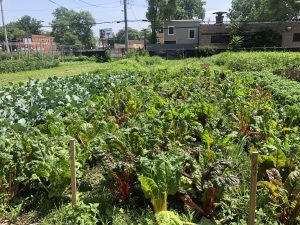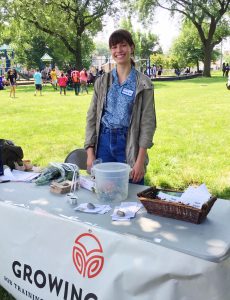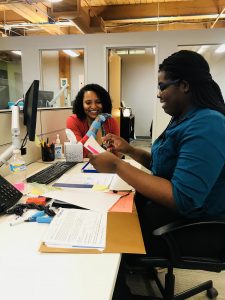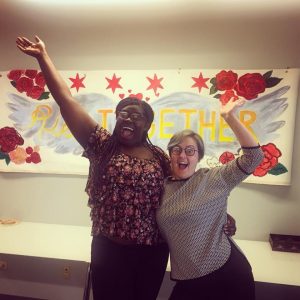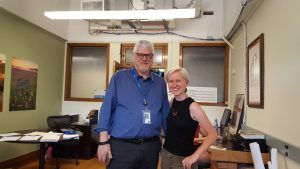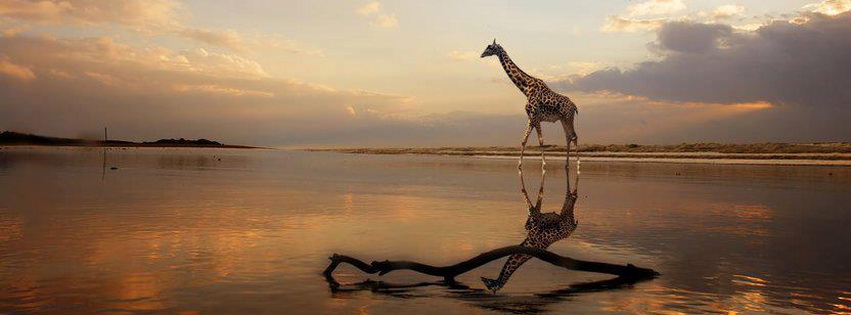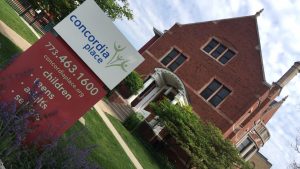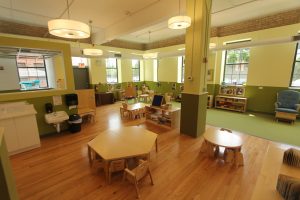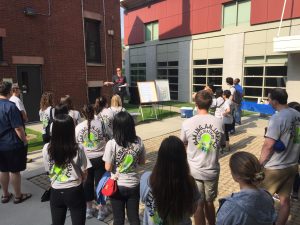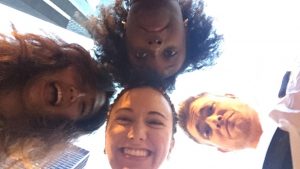On one of my first commutes to work I had left my headphones at my apartment. This is a big deal to someone riding the CTA, because headphones provide a welcomed distraction to the chaos of life in the city. This train ride felt really long and I tried to ignore the awkwardness I was feeling. As I stood to exit the train, an older man also stood so we made eye contact and shared a small grin. We stepped off, and as we hit the platform he started chatting to me about his day. We walked for about five minutes together before our routes took a shift as I went to walk into work and he was to continue down the sidewalk. Before we parted ways, he asked for my name and we shook hands as we shared a more genuine, friend-like smile.
I have reflected on this moment a lot during my summer. Perhaps the hardest part about the city to me is that human interactions are reserved for those at work or our known friends… rarely are conversations with strangers welcomed or encouraged. So then I started to think about why this is. Is it because people are somehow more dangerous in the city? Is it the fear that someone will ask something from us and it’ll feel awkward to deny? And I honestly couldn’t come up with an answer that made me feel content. I realize that there are major issues in the city that create for a dangerous environment and that crime rates are high. I realize that being a woman, I should be more mindful of the places I travel and what I do, in order to be safe. But these things still didn’t explain why humans couldn’t just love each other enough to engage in a simple conversation on the train. So the first step I took to experiment with this debate was to promise to never again wear headphones in a public place. With this one decision came many more interactions with strangers. I was asked multiple times for spare change, was complimented on my hair, and most often of all was asked, “Hey, how you doin?” in a non-Joey-from-Friends way but more of a thank-you-for-acknowledging-my-presence way. How crazy it was, that my removing my headphones, I automatically became a conscious member of society instead of a life-avoider. This of course made me start acting differently. I envisioned the people asking me for spare change as a version of myself in very different circumstances. Because of this empathy, I could no longer ignore them and make up excuses about why I couldn’t treat them as a member of society, so instead I would ask to pet their dog and talk to them about the pet. Or if they didn’t have a pet, I would just ask them how their day was going or have another form of conversation to initiate. Sometimes I had money and other times I didn’t, but in any case, I would never walk by without saying something.
I think this is what the CAPS Fellows Program meant to me. It’s exhausting to constantly be focused on MY purpose and MY career and MY achievements, especially when I don’t know what the heck my calling is. But what I do know, is that no matter what environment I am in or what day I am having, I need to be a conscious, loving member of society. I know that my purpose is to approach any situation in truth and in love. As I practice these two things more and more, I believe my calling will become more and more evident, and I can bless others while feeling content about my place in this world. And to those who are having trouble finding their calling also, I just wanna say… it starts with taking out our headphones.
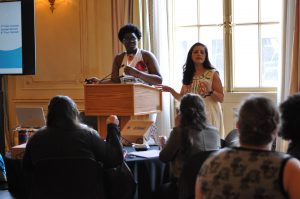
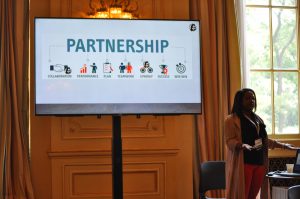
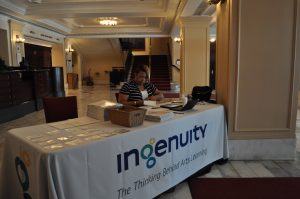
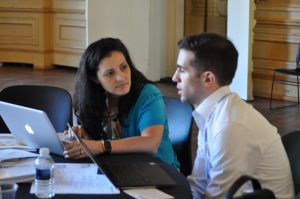
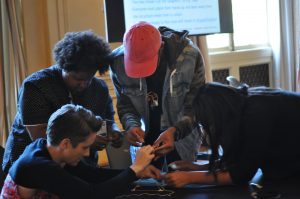
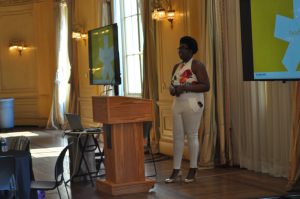
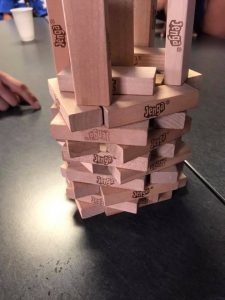
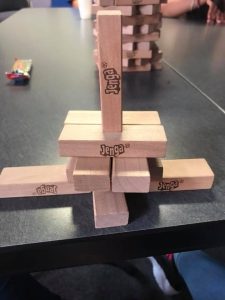
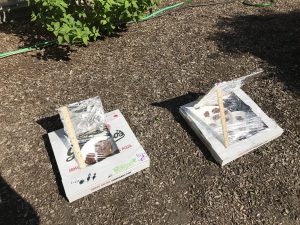
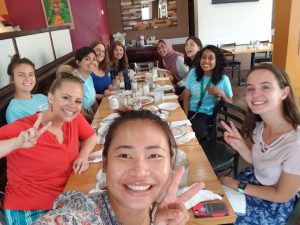
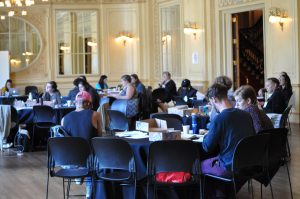
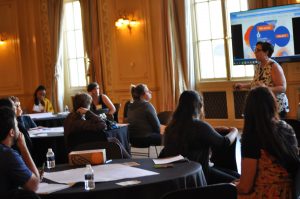
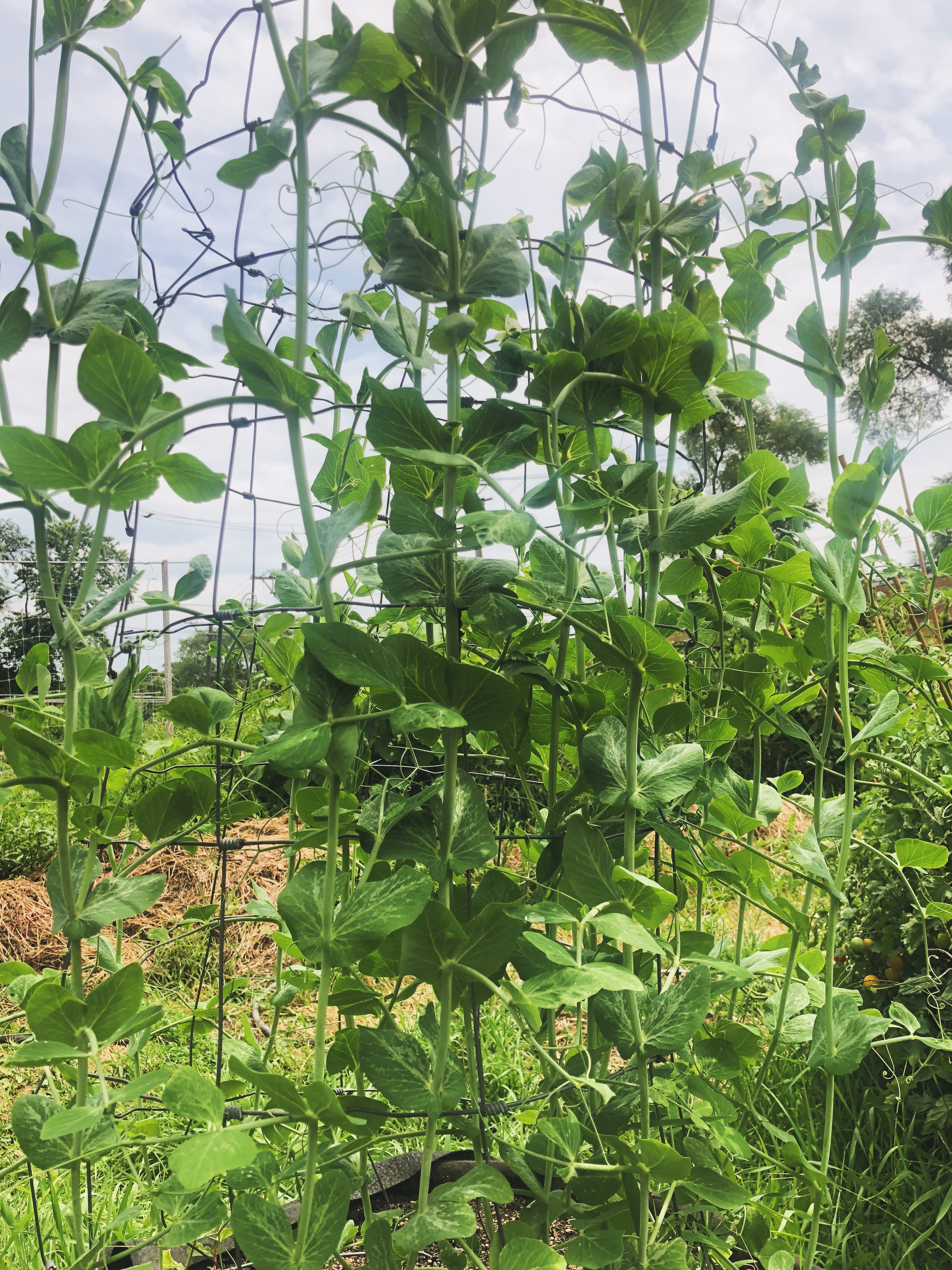
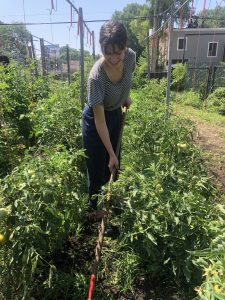
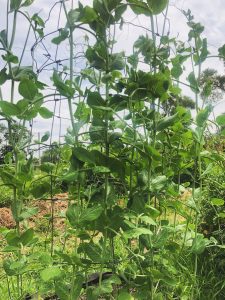
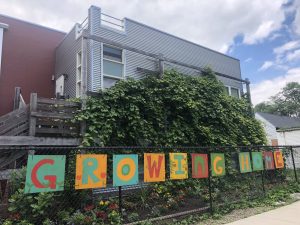
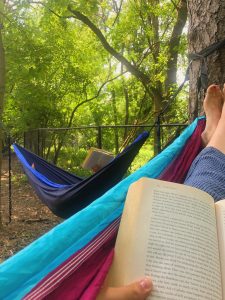
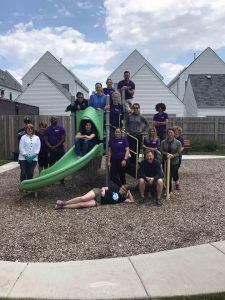
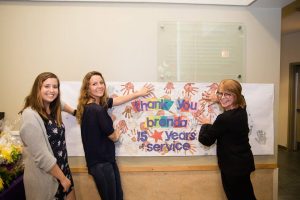
 Since this is my first blog, I’ll introduce myself. Hello, I’m Alicia, and I want to be an advocate for human trafficking survivors. It’s always a little awkward for me when I tell people my career aspirations. Human trafficking it’s exactly a light dinner conversation people expect when they ask me, “what do you want to do after graduation?” It may seem like I’m being unnecessarily specific, but I’m actually expanding my options. In high school I wanted to be a psychologist that specializes in healing trauma caused by human trafficking; however, VU has helped me broaden my career horizon while still centering it around human trafficking survivors. I could work as a lawyer, a policy maker, a researcher, an FBI intelligence analyst, or a caseworker. This why I find myself interning under caseworkers at Heartland Alliance’s Refugee and Immigrant Community Services (RICS). While this internship has been interpersonally and emotionally challenging; it has helped me grow in self-awareness and awareness of r
Since this is my first blog, I’ll introduce myself. Hello, I’m Alicia, and I want to be an advocate for human trafficking survivors. It’s always a little awkward for me when I tell people my career aspirations. Human trafficking it’s exactly a light dinner conversation people expect when they ask me, “what do you want to do after graduation?” It may seem like I’m being unnecessarily specific, but I’m actually expanding my options. In high school I wanted to be a psychologist that specializes in healing trauma caused by human trafficking; however, VU has helped me broaden my career horizon while still centering it around human trafficking survivors. I could work as a lawyer, a policy maker, a researcher, an FBI intelligence analyst, or a caseworker. This why I find myself interning under caseworkers at Heartland Alliance’s Refugee and Immigrant Community Services (RICS). While this internship has been interpersonally and emotionally challenging; it has helped me grow in self-awareness and awareness of r
